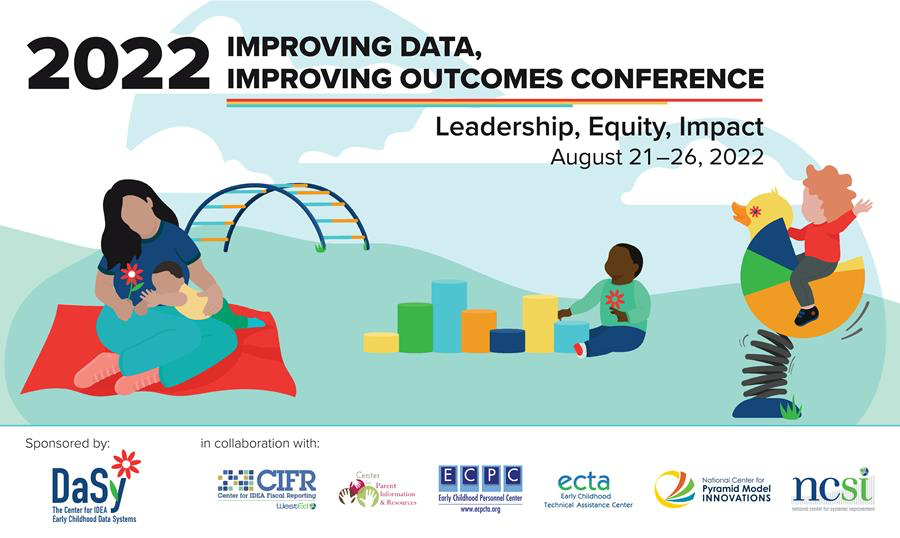
In collaboration with their early childhood technical assistance center partners, DaSy hosted the national IDIO conference with the theme of Leadership, Equity, Impact. The IDIO Conference was designed for IDEA Part C and Part B Section 619 Coordinators, IDEA Part C and B Data Managers, parent leaders, and others working to improve state capacity for equitable, evidence-based data systems, programs, and practices; and to ultimately improve outcomes for young children with disabilities and their families.
Meeting Agenda
» Conference Agenda At a Glance » Full Conference Agenda
Tuesday August 23
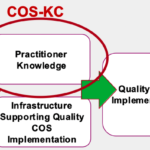 Improving Data Quality Using the Child Outcomes Summary Knowledge Check (COS-KC) with PractitionersAugust 2022. The COS-KC assessment checks if practitioners have background knowledge needed to participate in a high-quality Child Outcomes Summary process. These presentation slides are from an IDIO Conference session ...
Improving Data Quality Using the Child Outcomes Summary Knowledge Check (COS-KC) with PractitionersAugust 2022. The COS-KC assessment checks if practitioners have background knowledge needed to participate in a high-quality Child Outcomes Summary process. These presentation slides are from an IDIO Conference session ... Telepractice Going Forward: Developing State Guidance for Ongoing Use of the Service Delivery MethodTwo states share their processes used to develop current guidance and communication plans, based on data, to address the needs of families, providers, and staff to effectively implement telepractice as ...
Telepractice Going Forward: Developing State Guidance for Ongoing Use of the Service Delivery MethodTwo states share their processes used to develop current guidance and communication plans, based on data, to address the needs of families, providers, and staff to effectively implement telepractice as ...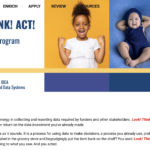 Look! Think! Act! Digging into a new resource to support state and local program improvementThe Look! Think! Act! workshop focused on how state staff members might use the available learning module to build the capacity of state staff and local program leaders. The content ...
Look! Think! Act! Digging into a new resource to support state and local program improvementThe Look! Think! Act! workshop focused on how state staff members might use the available learning module to build the capacity of state staff and local program leaders. The content ... Surviving and Thriving in the IDEA Part C and Part B 619 Data Manager RoleNew to the Data Manager role? Been in it forever? Ex-IDEA Data Managers share what works to get your job done—and keep your sanity. This session was not about the ...
Surviving and Thriving in the IDEA Part C and Part B 619 Data Manager RoleNew to the Data Manager role? Been in it forever? Ex-IDEA Data Managers share what works to get your job done—and keep your sanity. This session was not about the ... Critical Need to have Families at the TableFamilies are key stakeholders in state and local data conversations. They provide a unique perspective that is critical for program improvement. This session introduced the Family Data Leader Pilot project. ...
Critical Need to have Families at the TableFamilies are key stakeholders in state and local data conversations. They provide a unique perspective that is critical for program improvement. This session introduced the Family Data Leader Pilot project. ... Tune-up Your Family Outcomes Processes: Improving Response Rates and RepresentativenessThis presentation included strategies generated from multiple states involved in technical assistance to improve Family Outcomes representativeness and equity.
Tune-up Your Family Outcomes Processes: Improving Response Rates and RepresentativenessThis presentation included strategies generated from multiple states involved in technical assistance to improve Family Outcomes representativeness and equity.- Using Qualitative Data to Inform Programming and Engage StakeholdersThis presentation provides an introduction to qualitative data collection and analysis, including methods for incorporating equity considerations. It provided information about designing effective qualitative data collection instruments and about using ...
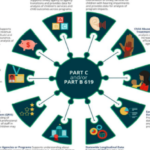 Everything You Need to Know to Successfully Link Data: A New Resource and a State StoryDuring this session, DaSy staff discussed how Part C and Part B program staff can leverage data linking to answer complex questions of interest. The presenters showed and described the ...
Everything You Need to Know to Successfully Link Data: A New Resource and a State StoryDuring this session, DaSy staff discussed how Part C and Part B program staff can leverage data linking to answer complex questions of interest. The presenters showed and described the ... Data Detective: Looking for Patterns in Child Outcomes Data to Assess Data Quality (Concurrent Session)In this session, participants engaged in practical exercises to look for expected and unexpected patterns in their own data with the goal of increasing competence with data quality and prioritizing ...
Data Detective: Looking for Patterns in Child Outcomes Data to Assess Data Quality (Concurrent Session)In this session, participants engaged in practical exercises to look for expected and unexpected patterns in their own data with the goal of increasing competence with data quality and prioritizing ... Data Detective: Looking for Patterns in Child Outcomes Data to Assess Data Quality (Workshop)In this workshop, participants engaged in practical exercises to look for expected and unexpected patterns in their own data with the goal of increasing competence with data quality and prioritizing ...
Data Detective: Looking for Patterns in Child Outcomes Data to Assess Data Quality (Workshop)In this workshop, participants engaged in practical exercises to look for expected and unexpected patterns in their own data with the goal of increasing competence with data quality and prioritizing ...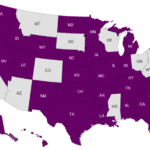 Part C and EHDI Data Partnerships: Sharing Resources and ExperiencesIn this session, participants explored mutual partnerships and data sharing between state Part C and Early Hearing Detection and Intervention (EHDI) programs. Presenters summarizes key data reporting requirements, information from ...
Part C and EHDI Data Partnerships: Sharing Resources and ExperiencesIn this session, participants explored mutual partnerships and data sharing between state Part C and Early Hearing Detection and Intervention (EHDI) programs. Presenters summarizes key data reporting requirements, information from ...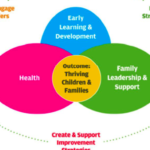 System Improvement for Equitable Access, Experiences and OutcomesMany folks have been engaged in equity work at a personal and professional level. But what does it mean to have an equitable system? This session focused on how to ...
System Improvement for Equitable Access, Experiences and OutcomesMany folks have been engaged in equity work at a personal and professional level. But what does it mean to have an equitable system? This session focused on how to ... What Are Internal Controls and Why Are They Important?Conference: IDIO 2022 Date: August 23, 2022 Presenters: Charlie Kniseley, Danny Rice, Ardith Ferguson, Katy McCullough, Anne Lucas As Part C lead agencies work to improve their single line of responsibility for fiscal ...
What Are Internal Controls and Why Are They Important?Conference: IDIO 2022 Date: August 23, 2022 Presenters: Charlie Kniseley, Danny Rice, Ardith Ferguson, Katy McCullough, Anne Lucas As Part C lead agencies work to improve their single line of responsibility for fiscal ...
Wednesday August 24
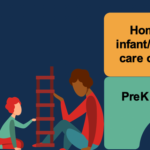 Broader than PreK: State Transition Planning from a Comprehensive ECCE LensThe session focused on why transitions matter, how PDG B-5 included transition as part of the grant, provided examples of state innovations, included national lessons learned, and discussed how Part ...
Broader than PreK: State Transition Planning from a Comprehensive ECCE LensThe session focused on why transitions matter, how PDG B-5 included transition as part of the grant, provided examples of state innovations, included national lessons learned, and discussed how Part ... Developing Use Cases to Support Your EI and ECSE Data AnalyticsThe presentation reviewed the process and components of a programmatic use case, discussed how to use the programmatic use case and reviewed a state example. Lastly, the session engaged in ...
Developing Use Cases to Support Your EI and ECSE Data AnalyticsThe presentation reviewed the process and components of a programmatic use case, discussed how to use the programmatic use case and reviewed a state example. Lastly, the session engaged in ...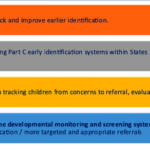 Getting to Know the Child Find Self-Assessment Toolkits for Part C and Part B 619!This presentation reviewed the Child Find Self-Assessments (CFSAs) for Part C and Part B 619. Presenters shared an overview of the tools, which focus on statutory requirements, best practices, and ...
Getting to Know the Child Find Self-Assessment Toolkits for Part C and Part B 619!This presentation reviewed the Child Find Self-Assessments (CFSAs) for Part C and Part B 619. Presenters shared an overview of the tools, which focus on statutory requirements, best practices, and ...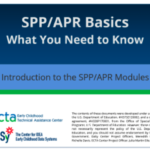 Your Best Ever State Performance Plan/Annual Performance Report: Reporting Tools and TipsThis presentation provided tips and tools to facilitate creation of states’ State Performance Plans/Annual Performance Reports (SPP/APR). It included background information on SPP/APR and gave an overview of the newly-developed ...
Your Best Ever State Performance Plan/Annual Performance Report: Reporting Tools and TipsThis presentation provided tips and tools to facilitate creation of states’ State Performance Plans/Annual Performance Reports (SPP/APR). It included background information on SPP/APR and gave an overview of the newly-developed ...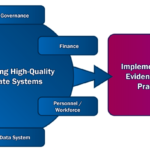 Practical Tips for Evaluating and Analyzing Data on Practitioners’ Use of Evidence-based PracticesIn this presentation, presenters share tips for high quality practice evaluation and analysis and present an example from Hawaii’s experience.
Practical Tips for Evaluating and Analyzing Data on Practitioners’ Use of Evidence-based PracticesIn this presentation, presenters share tips for high quality practice evaluation and analysis and present an example from Hawaii’s experience. Data Leadership Competencies: A New Resource to Build Part C and Part B 619 Data LeadershipThis presentation introduced DaSy’s newly developed data leadership competencies. These competencies describe what a state data leader or state team must know and be able to do in order to ...
Data Leadership Competencies: A New Resource to Build Part C and Part B 619 Data LeadershipThis presentation introduced DaSy’s newly developed data leadership competencies. These competencies describe what a state data leader or state team must know and be able to do in order to ...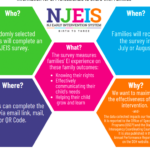 Engaging Stakeholders to Increase Feedback from Underrepresented FamiliesThis presentation included strategies generated from multiple states involved in technical assistance to improve Family Outcomes representativeness and equity.
Engaging Stakeholders to Increase Feedback from Underrepresented FamiliesThis presentation included strategies generated from multiple states involved in technical assistance to improve Family Outcomes representativeness and equity. Engaging & Empowering Families in Child Outcomes Conversations: Tips from Families and PractitionersTips to address challenges in COS conversations were gathered from family members and practitioners. This presentation summarized those tips and highlighted related resources to incorporate those tips into Child Outcomes ...
Engaging & Empowering Families in Child Outcomes Conversations: Tips from Families and PractitionersTips to address challenges in COS conversations were gathered from family members and practitioners. This presentation summarized those tips and highlighted related resources to incorporate those tips into Child Outcomes ... Navigating IDEA and FERPA To Protect Privacy in Today’s Early Childhood WorldThis presentation discussed the protection of personally identifiable information and data sharing, relative to requirements in the Individuals with Disabilities Education Act (IDEA) and the Family Education Rights and Privacy ...
Navigating IDEA and FERPA To Protect Privacy in Today’s Early Childhood WorldThis presentation discussed the protection of personally identifiable information and data sharing, relative to requirements in the Individuals with Disabilities Education Act (IDEA) and the Family Education Rights and Privacy ...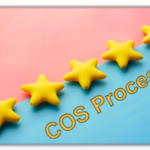 No Need to Reinvent the Wheel: Professional Development Resources to Reinforce Core COS PracticesThis session explored available Child Outcomes Summary (COS) resources that help teams focus on functionality, cover the breadth of the outcomes, develop age-anchoring skills, determine ratings with the decision tree, ...
No Need to Reinvent the Wheel: Professional Development Resources to Reinforce Core COS PracticesThis session explored available Child Outcomes Summary (COS) resources that help teams focus on functionality, cover the breadth of the outcomes, develop age-anchoring skills, determine ratings with the decision tree, ...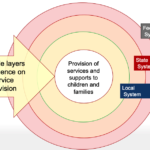 Building an Equitable System: Six Components of High QualityThis session focused on recent revisions to the revised Early Childhood Technical Assistance Center / Center for IDEA Early Childhood Data Systems System Framework to infuse equity more intentionally into ...
Building an Equitable System: Six Components of High QualityThis session focused on recent revisions to the revised Early Childhood Technical Assistance Center / Center for IDEA Early Childhood Data Systems System Framework to infuse equity more intentionally into ...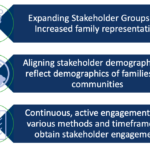 Building Effective Teams for Stakeholder EngagementHaving a robust stakeholder engagement plan is crucial. As states work to engage a broad range of stakeholders on an ongoing basis, virtual strategies and methods continue to be important—even ...
Building Effective Teams for Stakeholder EngagementHaving a robust stakeholder engagement plan is crucial. As states work to engage a broad range of stakeholders on an ongoing basis, virtual strategies and methods continue to be important—even ...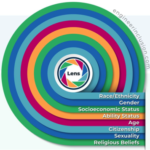 Intersectionality, Quality, and Inclusion: The Role of Race in the Early Childhood SystemToday’s early childhood system has many positive and meaningful supports for children and their families. However, outcomes for children are disparate. Equitable access, appropriate supports, and full inclusion are not ...
Intersectionality, Quality, and Inclusion: The Role of Race in the Early Childhood SystemToday’s early childhood system has many positive and meaningful supports for children and their families. However, outcomes for children are disparate. Equitable access, appropriate supports, and full inclusion are not ... The Basics of Identifying and Correcting NoncomplianceConference: IDIO 2022 Date: August 24, 2022 Presenters: Julie Austen, Sharon Walsh, Thomas McGhee, Stacy Callender, Christina Commons, Janet Timbs Presenters described in depth the requirements related to identifying and correcting noncompliance. State ...
The Basics of Identifying and Correcting NoncomplianceConference: IDIO 2022 Date: August 24, 2022 Presenters: Julie Austen, Sharon Walsh, Thomas McGhee, Stacy Callender, Christina Commons, Janet Timbs Presenters described in depth the requirements related to identifying and correcting noncompliance. State ...
Thursday August 25
 Hearing From All Families: Improving Family Outcome Survey MethodologyThis session addressed strategies for improving survey methodology for collecting family outcome survey data that yield quality data for making informed program decisions for ALL families across dimensions of diversity.
Hearing From All Families: Improving Family Outcome Survey MethodologyThis session addressed strategies for improving survey methodology for collecting family outcome survey data that yield quality data for making informed program decisions for ALL families across dimensions of diversity. Early Transition Data Listening Session: Exploring Transition Data Challenges, Strategies, and MethodsThis is the last in a series of stand-alone facilitated listening sessions provided by DaSy and ECTA focused on the transition from Part C to Part B, 619. Presenters shared ...
Early Transition Data Listening Session: Exploring Transition Data Challenges, Strategies, and MethodsThis is the last in a series of stand-alone facilitated listening sessions provided by DaSy and ECTA focused on the transition from Part C to Part B, 619. Presenters shared ...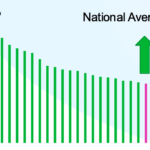 Making Sound and Equitable Preschool LRE DecisionsThe Individuals with Disabilities Education Act includes requirements for developing Individualized Education Programs (IEPs) and determining placements for preschool children with disabilities.
Making Sound and Equitable Preschool LRE DecisionsThe Individuals with Disabilities Education Act includes requirements for developing Individualized Education Programs (IEPs) and determining placements for preschool children with disabilities.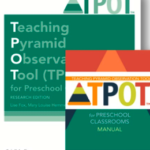 Using the Behavior Incident Report System to Identify and Address Exclusionary Discipline PracticesThe disproportionate use of exclusionary discipline among some groups of preschool children is a national concern. Data from the Behavior Incident Report System (BIRS), designed for programs implementing the Pyramid ...
Using the Behavior Incident Report System to Identify and Address Exclusionary Discipline PracticesThe disproportionate use of exclusionary discipline among some groups of preschool children is a national concern. Data from the Behavior Incident Report System (BIRS), designed for programs implementing the Pyramid ...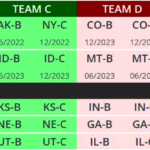 Tips and Resources to Prepare for Differentiated Monitoring and Support (DMS) 2.0Have you wondered what to do to prepare for your state’s engagement in DMS 2.0? Representatives from three Part C Cohort 1 states that have completed the Office of Special ...
Tips and Resources to Prepare for Differentiated Monitoring and Support (DMS) 2.0Have you wondered what to do to prepare for your state’s engagement in DMS 2.0? Representatives from three Part C Cohort 1 states that have completed the Office of Special ...

